The Business of Entropy
Using the Laws of Nature to Nurture the Economy

Do you know where your energy comes from? Not just the energy that powers your appliances, but every facet of your life. From the food you eat, to the fuel in your car, to the electricity in your home, energy moves everything in our lives. That should come as no surprise, but what you may not know is that our energy has a time limit. Rather, the location and distribution of energy changes over time. This is known colloquially as the second law of thermodynamics, the law of entropy. The first law states that the total energy in the universe is constant, and therefore energy cannot be created or destroyed, it can only change forms. Thanks to the understanding of these laws, humans have been able to industrialize their lives in ways unimaginable just a few centuries ago. But as a law of nature, entropy affects every aspect of our lives, not just the things we use switches on. So no matter what your profession is—or whether you ever took a basic science class—it pays to understand how it works.
In this article I'm going to discuss how the flow of time and energy have been used to build human society, and how we can work more harmoniously with nature to nurture the growth of life and infrastructure. In his short introduction to thermodynamics, Peter Atkins speaks about how he often began his chemistry lectures by saying that no scientific law has contributed more to the liberation of the human spirit than the law of entropy. He even goes on to cite his fellow chemist C.P. Snow, who likened not knowing the second law of thermodynamics to never reading a work of Shakespeare. Needless to say, it's a big deal. If the first law sets the playing field of the universe we live in, then the second law lays out the rules of the game. As such, it governs every aspect of our daily lives, and understanding it is paramount for every human being looking to maximize their efficiency in work and life.
Thanks to entropy, as the universe gets older energy dissipates from hot locations to colder ones. Not only that, but structures within the universe go from order to disorder as the sands of time progress. So, for our purposes we will use the word entropy as being synonymous with the passing of time, in addition to the flow of energy, although they are not strictly equivalent. For more information, you can check out chapter 13 of my book, where I discuss in greater depth how the laws of nature affect government, agriculture, industry, and space exploration. But for now here's a small taste.
What is "Energy" Anyway?
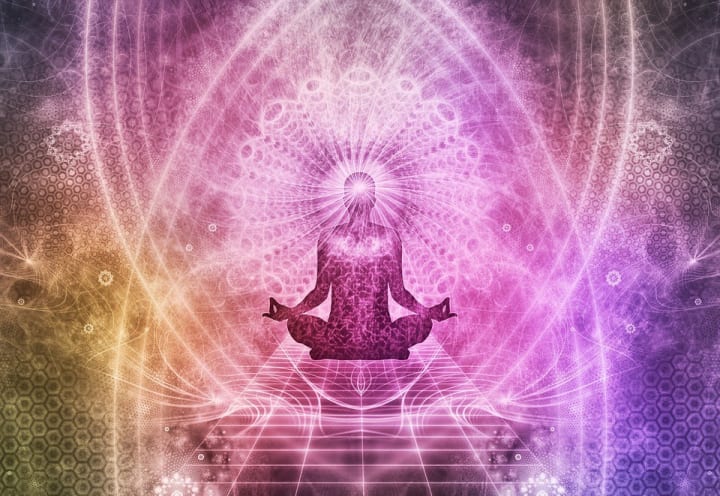
In short, energy is everything in the universe. It's what makes up every quark in every nucleon in every molecule in every cell in your body. It is even found in the vacuum of space in the form of radiation. And since the atoms in your body can be found in rocks, plants, and animals, and are the same as the atoms found in every star in the universe, your energy is tied inextricably to all of the cosmos. Energy is what you are.

Of course, as previously mentioned, energy takes a cornucopia of forms and varieties. For example, light carries energy, and the amount of energy a photon (or unit) of light carries dictates what type of light you observe. Gamma rays are more energetic than radio waves, just as violet light is more energetic than red light. But the energy in light is different than the energy in the atoms of your body. Specifically, the energy in light (or similar subatomic particles) isn't bound, and is solely carried as momentum, or movement. Particles like quarks and electrons—which make up atoms—also carry their energy in the form of mass. As a result, objects with mass can never move as fast as objects without mass, a rate known as the speed of light. But it's thanks to that slowness that things like galaxies, stars, planets, and life can form at all! Of course, energy is also needed for modern amenities and basic survival. We use heat (which is just infrared light) to drive our power plants and move electricity, just as we use sugar to fuel our bodies (sugars just being energetic molecules). However, in order to get that energy to change forms, we need to do work. The thing is, all objects in the universe tend toward their lowest energy. This is were entropy comes in.
How Entropy Affects Our Everyday Lives
Entropy is a measurement of disorder in a system. In other words, it's a measure of how "chaotic" a system is. When first introducing the concept, scientists often liken it to the state of one's bedroom or home; no matter how many times you clean it, it always seems to get messy again. In a cup of coffee with milk, one would similarly observe that although the two liquids might start out separate, over time they would mix until splitting them became impossible. I stated earlier that objects tend toward lower energy, which means they tend toward cooler temperatures. Heat only moves from hot to cold. This may sound strange when you think about such things as refrigerators, which seem to reverse this process by transferring cold (from the appliance) to hot objects. However, refrigerators take electricity to run, and that electrical energy ultimately comes from the same source that powers your home, adding to the overall entropy of the universe. And where does all that lost heat energy go?
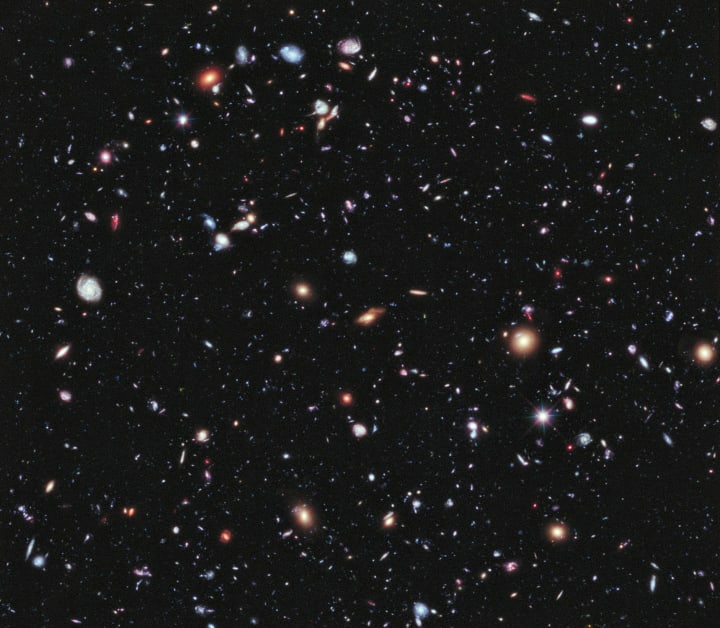
On Earth, the power of entropy drives energy from the Sun and the planet's core, through living organisms and our appliances, and finally out into the vacuum of space where it will eventually redshift into nothing as the universe continues to expand, thin, and cool. As human beings, our task is to understand the flow of energy through our global environment, so as to best utilize that energy before it's all gone. In essence, all activity of living organisms is based around manipulating energy before it gets from point A (hot and dense from the big bang) to point B (cold and thin as the universe ages), and this results in the food chain, the industrial complex, and all other human activities.
As an aside, an interesting phenomena arises as a consequence of another natural law, that described by Einstein's special theory of relativity. It states that time passes differently when an object is moving as opposed to standing still. This is a consequence of the speed of light being constant. Since speed is distance (or space) covered over a certain time, in order for speed to be constant, space and time have to be able to change in order to accommodate. As a result, moving clocks run more slowly relative to stationary ones. This extends to objects in strong gravity as well, because objects need to move more quickly to avoid falling into stronger gravitational wells. This is why time passes more slowly around, say, a black hole. This also means that active people technically age more slowly than people who sit around all day, although the effects are so small they may as well be negligible. Something to keep in mind next time you're stuck inside your cubicle. But exercise isn't all we need to maximize our working efficiency. We also need a healthy diet.
Entropy and Agriculture
In order to stay alive, we need to eat food. Of course, that food almost certainly comes from something that was previously alive, be it plant, animal, or fungus. Food is the source of the energy we need to tackle our daily routine. As such, agriculture is the base of modern society. If you don't eat well you can't do your job well, and so it's important to understand what organisms we need to eat for our bodies to best convert their energy into ours.

Ultimately, all of the energy we need to survive comes from the Sun. While the first microscopic life likely had to survive on the geothermal heat from our cooling planet, photosynthesis is the lynchpin to the survival of all modern multicellular life, including us. As the Sun contracts under its own gravity, protons in its core fuse, losing some of their mass and releasing that energy in the form of light. That light then travels for hundreds to thousands of years to get out of the Sun, eight minutes through the vacuum of space, and finally onto the green leaves of plants. The plants then use the energy in the Sun's light to grow, as well as to string together carbon atoms into what we know as carbohydrates. As we all know, plants have many clever ways of storing these nutrients, in their roots (like in carrots or potatoes) and in the fruit that either goes into feeding their seeds, or to attracting animals that spread those seeds, which in turn get fertilized by the animal's detritus. Plants serve as the base for many food chains, and as such they are the most efficient means of acquiring energy.
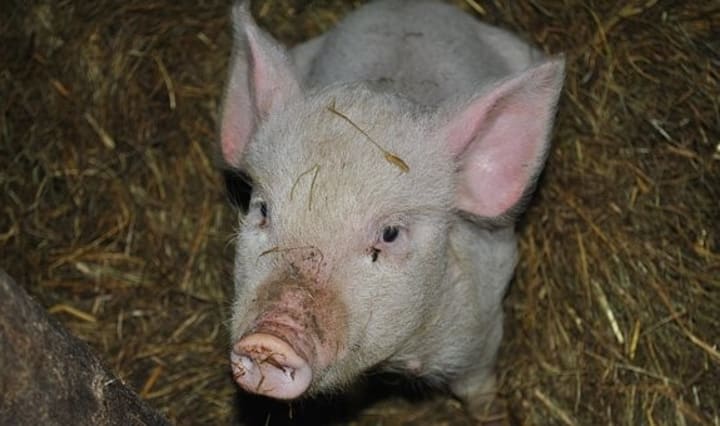
A slightly less efficient means of acquiring energy, obviously, comes from eating the animals who eat plants. Now, animal predation isn't unnatural, but there is a strange idea being perpetuated in the west that eating meat is somehow necessary for a healthy diet. Not only is this a myth, but it is also very inefficient, and as a result of so many people thinking they need to eat meat at every meal, the planet, economy, and health of our species is being strained to the point of breaking.
There is a principle in biology tied to entropy, which states that as one goes up the food chain, there are less and less of a given species. In other words, there are less carnivores than the herbivores they eat, and there are less herbivores than the plants they eat. The reason for this is due to how energy is lost to the universe as heat every time something gets eaten. As a result, it is more difficult to get your nutrients from an animal than from a plant. To compound this issue, in order to raise the animals in the quantity we currently eat them, we have to feed them crops like corn (which we could just be eating), and devote large amounts of water to them and the crops they eat (which we could just be drinking). Furthermore, keeping animals in one location decimates the land form allowing anything to grow on it, and the methane they release accelerates the shift in the climate which further kills off croplands that we need to survive. And while their meat does provide protein we can use to build muscle, that can easily be replaced with a balanced diet of nuts, berries, and leaves (how do you think gorillas get so buff?). In that sense, it is entropically advantageous to reduce the amount of meat products being consumed by the general pubic. That's not to say that everyone needs to stop eating meat entirely, but limiting the intake of meat to holidays while maintaining a plant based vegan diet the rest of the year is a small price to pay for global security. Speaking of the climate...
Entropy and Industry

Using the natural transfer of energy to harness electricity may have been the most remarkable thing to ever be accomplished by any living organism on the planet Earth. It has given us all sorts of things, from cell phones, to radio, the internet, and everything in between. No longer are we slaves to the cycles of day and night like every other creature, nor are we limited to traveling at the pace of our mere feet. Now we can drive cars, fly planes, and even use rockets to soar into space (a definite one-up on the dinosaurs). And how do we do it?
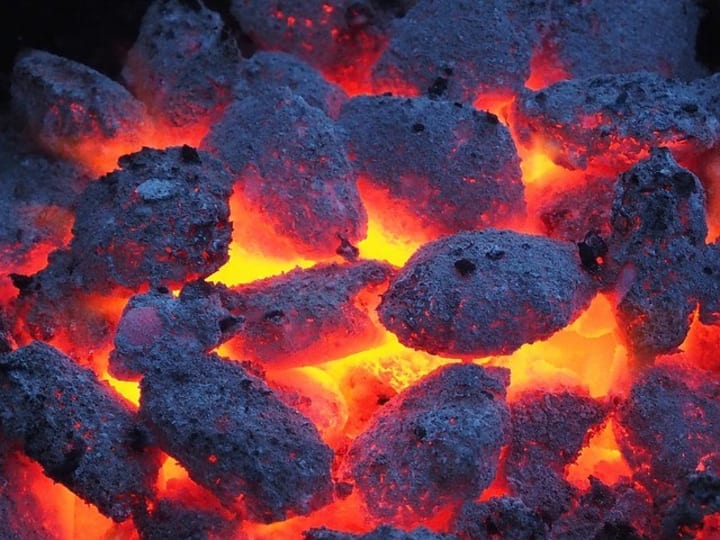
We light rocks on fire of course! Well, not exactly, we also light oil on fire. It's quite a remarkable process really. Energy from the Sun, used to pull together carbon, which was then crushed and collected in the high-pressure furnace of the Earth over 300 million years, is now being oxidized, releasing that energy to rotate turbines that move electrons through metal wires, all so we can watch bad television and go really really fast!
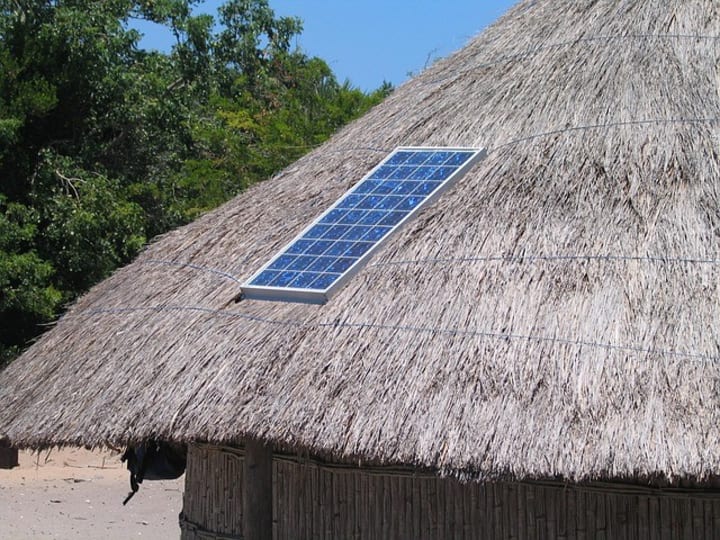
Jokes aside, more and more people are beginning to understand that not only is the use of fossil fuels a temporary endeavor, but moreover its byproducts result in the rapid heating of the Earth. This warming alone isn't necessarily a problem, except for the fact that it's occurring so quickly that the rest of the biosphere can't keep up. It causes the oceans to rise and acidify, and the climate to shift, which results in floods for some areas and droughts for others. Clearly, the most efficient means of rectifying the problem is to go straight to the source of all this energy, our home star, which drives the winds and to an extent the tides as well. Thankfully, solar technology is fast improving, becoming more cost efficient and sustainable every day.
Entropy and the Economy
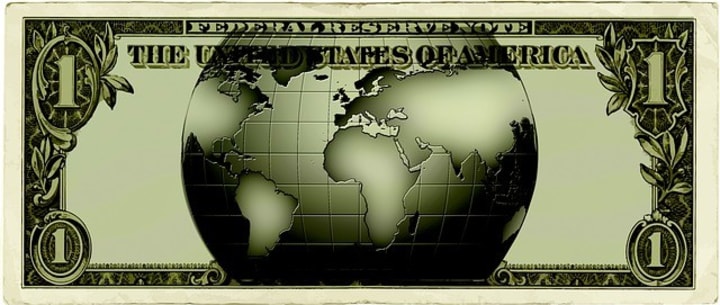
No matter what your profession, it is always best to use the most energy efficient route to conduct your business. It is a sad truth that all things eventually decay. But understanding the flow of energy can allow us to make the most of our position. We've done a pretty good job so far, from learning agriculture to working out the nature of quantum mechanics well enough to invent laptops. And no matter who you are, thinking in terms of entropy will make you far more effective in the way you conduct yourself. For example, if you're thinking of starting a new business, always look into finding free resources. Grow your industry in incremental steps, don't expect to jump to the top overnight. Don't try to force things, instead go with the flow. Life is like a river; you can't change the direction of the current, but you can use a sail to alter your direction. Once you've done that, you'll find that the power of the river starts working for you.
As the world continues to come together and globalize while life expectancy grows, people will continue to have difficultly finding new work, and eventually the economy will stagnate. On a more somber note, in about 4.5 billion years the Sun will burn out, taking the Earth with it. The solution to both of these problems seems to correlate: at some point we will need to take our business into outer space. Every profession will be needed, whether your field is medicine, real estate, agriculture, engineering, academics, you name it. It doesn't need to be a sudden process either. In my book I outline how to make space exploration a gradual process, from setting up moon bases to how to look for a new planet. Who knows, one day we might even find a way to survive the heat death of the universe. After all, there is still plenty more for us to learn about this strange, amazing place we find ourselves being born and dying in.
So when conducting business, it is pivotal to keep in mind that ultimately, all things fall apart. Change is the nature of the universe, but that change can be embraced and harnessed to bring about diversity and beauty. The key is to be conscientious about our decisions, and to use our human ingenuity to continue to focus that transfer of energy. To help you out, here's a nifty NASA chart from 2009 that may make the whole picture a little more clear.
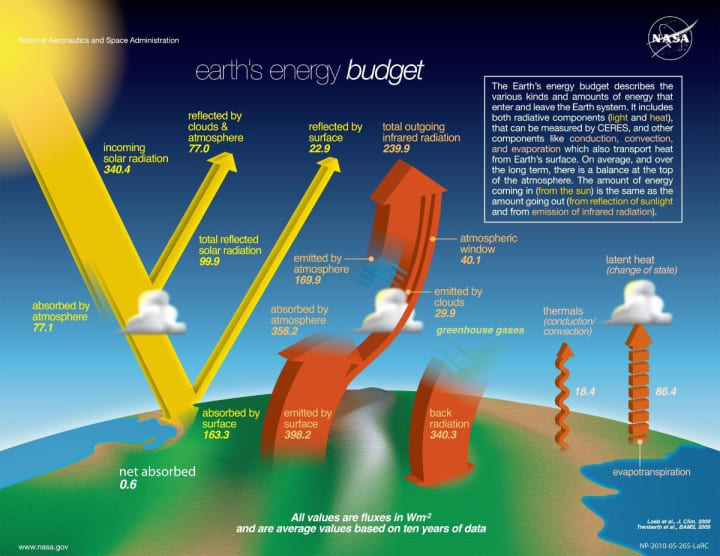






Comments
There are no comments for this story
Be the first to respond and start the conversation.